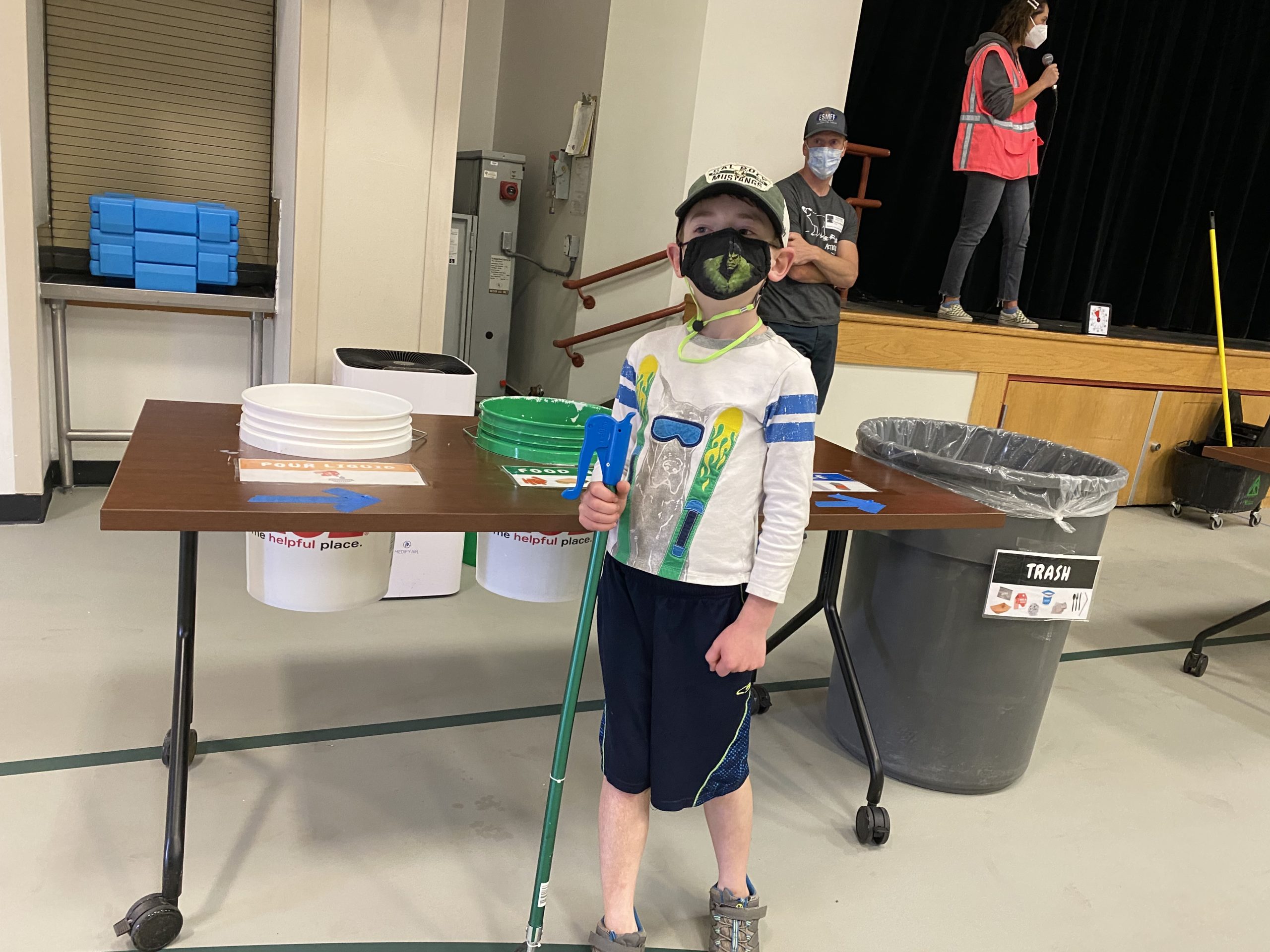The start of the school year always comes with new changes – new classmates, teachers, and classrooms. This year, students at Glenshire Elementary School had something new in the cafeteria: waste sorting tables. These new waste stations are designed to help students separate their lunch waste into buckets for liquids, food waste and recycling to keep as much waste out of the landfill as possible.
Keeping food waste out of landfills is one of the powerful ways to fight climate change. When food rots, it emits methane into the atmosphere, a potent greenhouse gas. TTUSD kitchen staff have already been sorting food waste for a couple years. Materials are sent to a composter who turns the food scraps into nutrient-rich soil, storing the nutrients back into the earth instead of letting it rot into the atmosphere. Now, the students at TTUSD are joining in on the fight against climate change. Glenshire Elementary is piloting the first student-run food waste sorting program in the school district with the goal of eventually expanding to all school sites. Keep Truckee Green and Sierra Watershed Education Partnerships (SWEP) have worked closely with TTUSD staff to bring this program to life. The pilot at Glenshire Elementary will inform best practices to later expand the program to all Truckee schools.
The sorting tables are designed to make separating materials easy. It’s essential that only food scraps are sent to the composter. Trash, like plastic, paper or “compostable plastics” cannot be composted and contaminates the final product, creating a burden on the composters at Full Circle Soils and Compost located in Carson City. “Compostable plastics” and other contaminants don’t break down in the outdoor compost facility and end up polluting the soil, and possibly leaving behind harmful chemicals. Through the first two weeks of school, SWEP and Keep Truckee Green staff taught the students the importance of only placing food scraps in the compost bucket. Students are also reminded that the best thing they can do for the planet is to eat all their food rather than compost it. Lots of energy and resources go into producing food, and while composting edible food is better than landfilling it, it’s still a waste.
After the first weeks of the pilot at GES, the trash can was noticeably lighter at the end of lunch. While the sorting tables create a bit of extra work for custodial staff who empty each container, the end impact creates a positive influence on the planet. Students and staff can leave knowing they are reducing their waste generation and making a positive impact. Inspiring young kids to make a difference has a ripple effect on the community. Thank you to the students and staff at Glenshire Elementary for all your dedication towards waste reduction.



